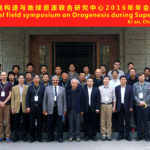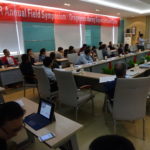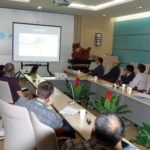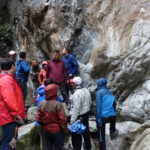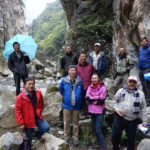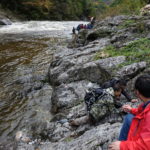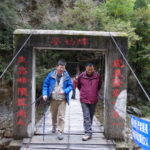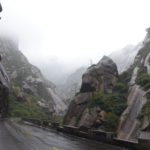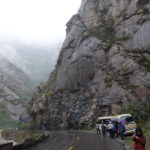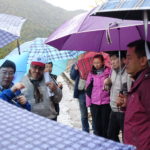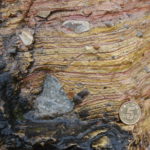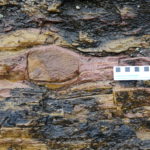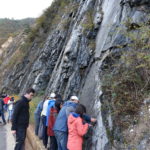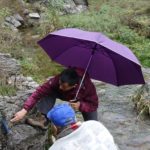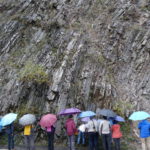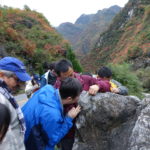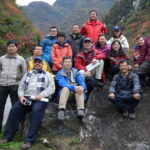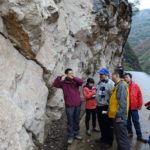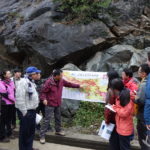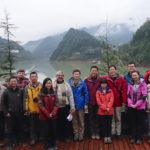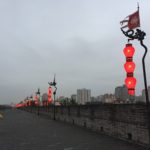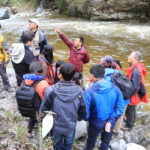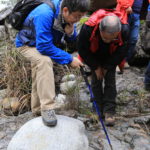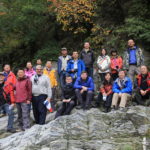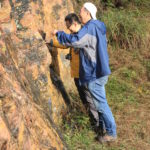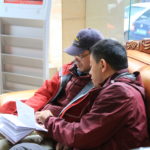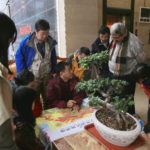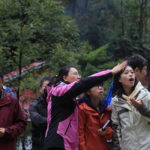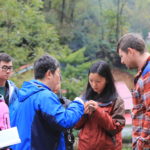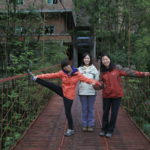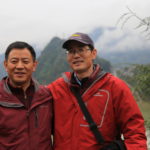ACTER 2016 Field Symposium in Xi’an, 20-29 October, 2016
ACTER 2016 Field Symposium, focusing on the theme of “Orogenesis during Supercontinent Cycles”, was successfully held in Xi’an and the adjacent Qinling orogen, China, between 20-29 October 2016. The event was jointly organised by ACTER’s China lead institution — the Institute of Geology and Geophysics, Chinese Academy of Sciences (CAS), and event host institution — Northwest University of China. It was participated by both senior and junior staff, and postgraduate students from ACTER partners. These include CAS’s Institute of Geology and Geophysics and Guangzhou institute of Geochemistry, Zhejiang University, Ocean University of China, Chinese Academy of Geological Sciences, Peking University, Sinopec, Curtin University, and University of Queensland. Staff and students form Northwest University also actively participated in the event.
The field symposium started with a one-and-half day indoor meeting, featuring talks covering most aspects of orogenic cycles and their roles in supercontinent cycles and Earth evolution in general, and record of orogenic events in both the Asia-Pacific region and elsewhere. Talks were also given on latest developments in analytical methods such as isotopic and thermo- and geochronological analyses. A number of talks were specifically dedicated to the evolution and architect of the nearby Qinling orogen – main target of the field symposium. The Vice Prescient of Northwest University, Professor Ling Gao, and academician Professor Guowei Zhang, opened the event and participated in part of the indoor discussions (see group photo in front of Northwest University’s Geology Department).
An eight-day field excursion followed, led by Prof. Yunpeng Dong of Northwest University. The traverse started form the northern foreland region on the southern margin of the North China block, crossed the Taowan, Kuanping, and Erlangping groups, the Qinling metamorphic complex, the Danfeng suture zone, the Southern Qinling terrane, and finished in the southern foreland region at the northern margin of the South China block. Traditional development of concepts and latest scientific findings were constantly discussed on and off the outcrops, and participants agreed on disagreements over many controversial topics. Along the way key scientific issues have been identified, some collaborative arrangement were made to work together to address such issues, and professional connections were established between members of various career stages, disciplines, and institutions. The unseasonal rainy weather was a challenge at times, but it did not damp participants’ enthusiasms in learning about the evolution of the mighty Qinling ranges, or the ancient and colourful cultural and history that packed the entire trip.

